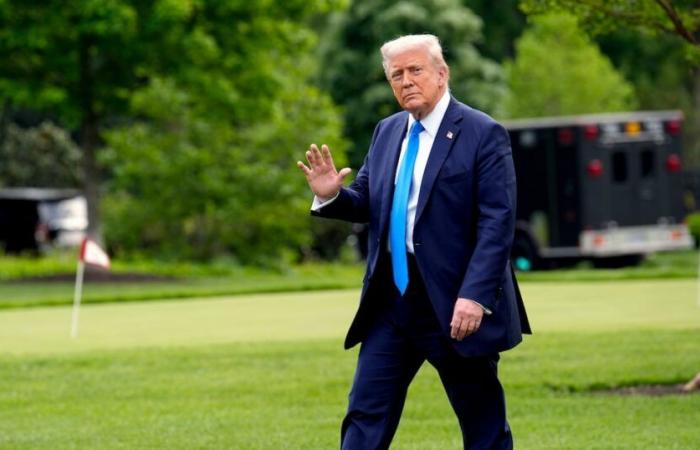Bloomberg – President Donald Trump announced Sunday that he plans to impose a 100% tariff to films produced abroadextending for the first time its restrictive commercial policies on US imports to the entertainment sector.
In a post in Truth Social, the US president said he was instructed to the Commerce Department and his commercial representative to “immediately initiate the process of instituting” the tax on foreign films. “We want movies made in America, again!” Trump continued.
See more: how to see Star Wars movies in order and which ones they made the most money
The president also placed foreign productions as a threat to national security, saying that other nations were using messages for messages and propaganda.
Trump’s publication followed the meetings that the president held during the weekend with actor Jon Voight and his representative, Steven Paul. They met with Trump at their Mar-A-Lago Club, according to familiar people with their visit that they asked not to be identified because the meetings were private.
Voight and Paul presented their plans to increase federal fiscal incentives to US film and television production. Its proposals include expanding existing tax credits and recovering those that have expired. Voight’s group did not propose tariffs as part of his plan, but the president talked about those levies in his meetings. There were no specific details about tariffs.
In January, Trump appointed Voight along with actors Mel Gibson and Sylvester Stallone Special Ambassadors in Hollywood with the aim of promoting employment in the US.
It is not clear how that tariff would work, nor how those films would be valued for tariff collection purposes. Many films of Hollywood studies involve a global production, which includes filming locations in foreign countries and a postproduction work that can be made anywhere in the world. Other unanswered questions are whether the rate applies to films already filmed, but not yet released, or only to new productions.
Among the next premieres that include wide locations abroad are The Fantastic Four: First Stepsby Walt Disney CO (DIS), which was shot in the United Kingdom and Spain, and Jurassic World Rebirthby Universal Pictures (UVV), with locations in Thailand, the United Kingdom, Malta and the United States.
The measure occurs after China decided last month “moderately reduce” the number of Hollywood films allowed in the country in retaliation for Trump’s aggressive tariffs to his American rival. China’s film administration said in April that The restrictions “inevitably would further reduce the favorability of the national public towards American films. “
Although the American film industry is the most influential in the world, foreign films have experienced an increase in popularity in recent years, reaping awards. The South Korean thriller, for example, won four academy awards, including the coveted best film in 2020.
The film and television industry maintained about 2.3 million jobs in the US in 2023, according to the Motion Picture association commercial group. The association did not respond to a request for comments on Trump tariffs made outside the usual working hours.
The work in film and television in the US has contracted in recent years for several reasons. The media companies have trimmed spending in an attempt to increase their benefits when moving from traditional television to streaming services. These streaming services are expanding globally and seek to produce more films for foreign markets.
See more: Trump points to his willingness to lower tariffs to China “at some point”
Film and television production expense in the United States fell 28% between 2021 and 2024, according to Data Firm Data. Other countries, such as Canada, Australia and the United Kingdom, are experiencing an increase in film and television production, due in part to attractive tax incentives and lower production costs.
Film and television shootings in the Los Angeles metropolitan area descended 22% in the first quarter, reflecting the continuous loss of California business in favor of other areas.
Read more at Bloomberg.com






